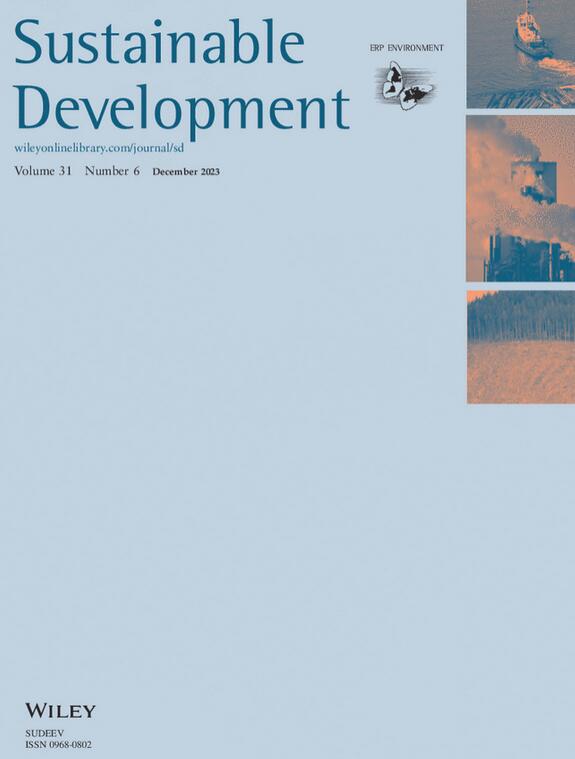释放自然资源、经济复杂性和可持续经济增长之间的动态联系:20 国集团国家的证据
IF 8.2
1区 环境科学与生态学
Q1 DEVELOPMENT STUDIES
引用次数: 0
摘要
本研究深入探讨了获取自然资源是福还是祸,这是当代文献中争论不休的一个问题。由于缺乏确凿证据,尤其是在 20 国集团国家内,本研究致力于建立经济发展、自然资源和经济复杂性之间错综复杂的联系。本研究使用 1990 年至 2021 年 20 国集团经济体的子集来分析第二代 CS-ARDL 模型的结果。在考虑了腐败、劳动力总量、资本形成总额、贸易开放度和外国直接投资流入量等变量后,我们发现自然资源、经济复杂性、腐败和资本形成总额对经济增长具有显著的不利预测作用。对自然资源的依赖易受价格波动和可持续发展问题的影响,经济复杂性可能会带来市场波动的挑战,腐败会削弱信任和透明度,过度的资本形成总额会导致经济失衡。另一方面,包括外国直接投资、贸易开放度和劳动力在内的控制变量的额外效应也会对经济增长产生积极影响。在制定政策建议时,本研究巧妙地编织了一幅与可持续发展目标(SDGs)核心原则相呼应的织锦。这些战略要务包括对资源的巧妙管理、经济多样性的培育、贸易的无缝便利化、反腐败的强化,以及强调金融稳定和人力资本培育的和谐交响乐,最终描绘出一幅可持续经济增长的生动画卷。本文章由计算机程序翻译,如有差异,请以英文原文为准。
Unleashing the dynamic linkages among natural resources, economic complexity, and sustainable economic growth: Evidence from G‐20 countries
This research delves into whether access to natural resources is a blessing or a curse, a matter of contention within contemporary literature. Lacking conclusive evidence, particularly within the G‐20 countries, this study endeavors to establish the intricate linkages between economic development, natural resources, and economic complexity. A subset of G‐20 economies from 1990 to 2021 was used to analyze the results of the second‐generation CS‐ARDL model. After accounting for variables like corruption, total labor force, gross capital formation, trade openness, and inflow of foreign direct investment, we find that natural resources, economic complexity, corruption and gross capital formation are significant and adverse predictors of economic growth. Natural resource dependence is susceptible to price fluctuations and sustainability concerns, economic complexity may introduce market volatility challenges, corruption erodes trust and transparency, and excessive gross capital formation can lead to economic imbalances. On the other hand, economic growth is positively impacted by the additional effects of the control variables, including foreign direct investment, trade openness and labor force. In crafting its policy recommendations, this study artfully weaves a tapestry that resonates with the core principles of the Sustainable Development Goals (SDGs). These strategic imperatives include the adept stewardship of resources, the cultivation of economic diversity, the seamless facilitation of trade, the fortification against corruption, and a harmonious symphony that underscores financial stability and the nurturing of human capital, ultimately painting a vivid portrait of sustainable economic growth.
求助全文
通过发布文献求助,成功后即可免费获取论文全文。
去求助
来源期刊

Sustainable Development
Multiple-
CiteScore
17.30
自引率
11.20%
发文量
168
期刊介绍:
Sustainable Development is a publication that takes an interdisciplinary approach to explore and propose strategies for achieving sustainable development. Our aim is to discuss and address the challenges associated with sustainable development and the Sustainable Development Goals. All submissions are subjected to a thorough review process to ensure that our readers receive valuable and original content of the highest caliber.
 求助内容:
求助内容: 应助结果提醒方式:
应助结果提醒方式:


